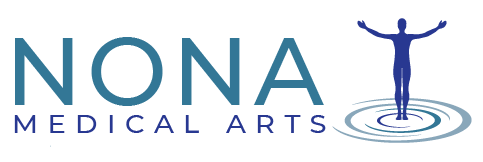Neck pain, sometimes called cervical pain, can have a number of causes, from poor posture to strains, wear on the joints, nerve compression, a herniated disc, disease or injury.
Along with pain, there may be tightness and spasms, limited range of motion and headache.
Neck pain can have causes that aren’t due to underlying disease. Examples include extensive straining (looking up or down), typing at a computer, sleeping in an uncomfortable position or with a bad pillow, stress, chiropractic manipulation, or wearing heavy jewelry.

The symptoms of cervical spondylosis include:
-
Neck stiffness and pain.
-
Headache that may originate in the neck.
-
Pain in the shoulder or arms.
-
Inability to fully turn the head or bend the neck, sometimes interfering with driving.
-
Grinding noise or sensation when the neck is turned.
Learn more about how Nona Medical can help eliminate your neck pain.
Rarely, neck pain can be a symptom of a more serious problem. Seek medical care if your pain is accompanied by numbness or loss of strength in your arms or hands or if you have shooting pain into your shoulder or down your arm.
Arm weakness may accompany other symptoms, which vary depending on the underlying disease, disorder or condition.
Spondylosis
Spondylosis is common and worsens with age. This condition is often used to describe degenerative arthritis (osteoarthritis) of the spine. Spondylosis is a general term for “age-related” wear and tear of the spinal disks.
Facet Joint Syndrome
Facet joint syndrome is an arthritis type, spinal condition that can be a significant source of neck pain. It is caused by degenerative changes to the joints between the spine bones.
Muscle Strain of the Upper Back / Neck
A neck strain occurs when one or more fibers in a neck muscle or tendon stretches too far and tears. This injury, also called a pulled muscle, can vary in intensity depending on the tear’s size and location. While a neck strain typically heals on its own within a few days or weeks, the pain may range from mild and achy to sharp and debilitating.


